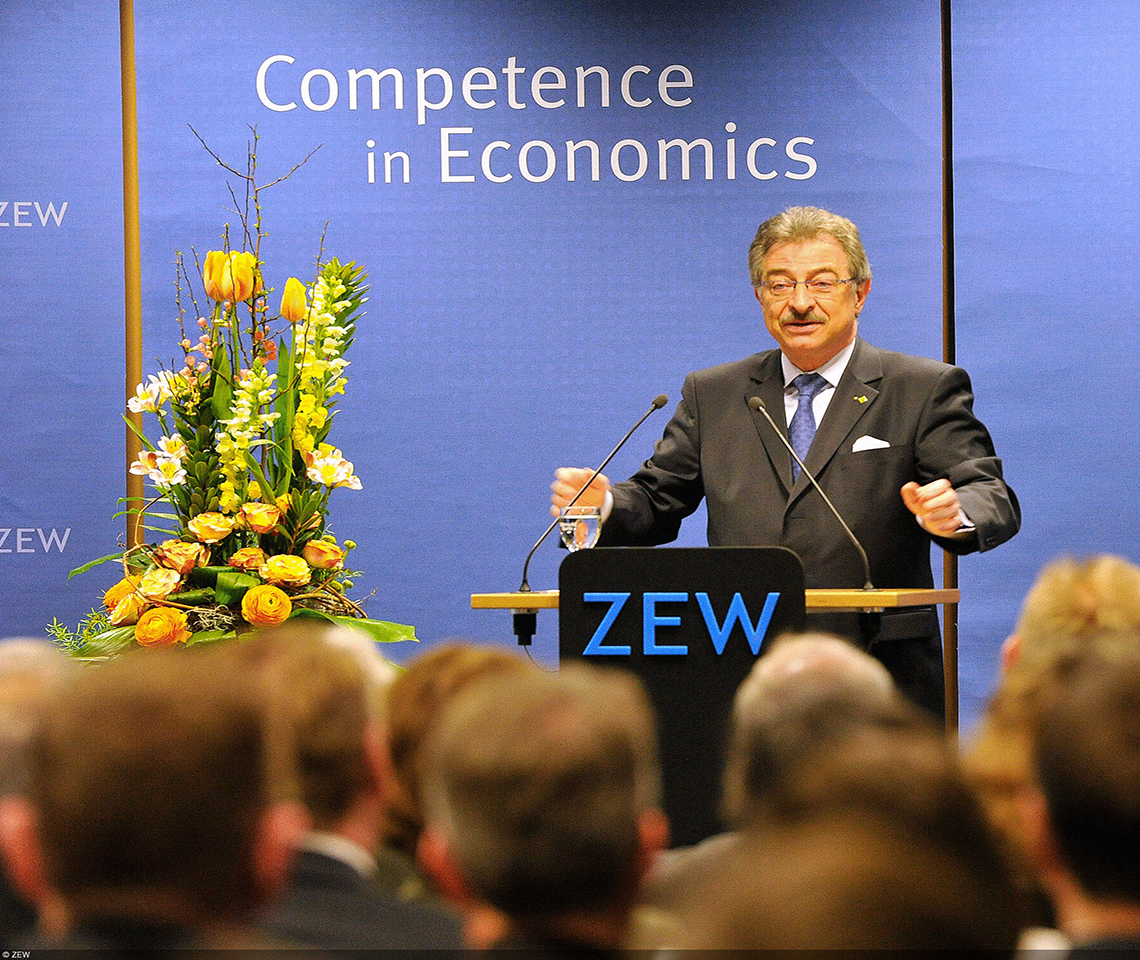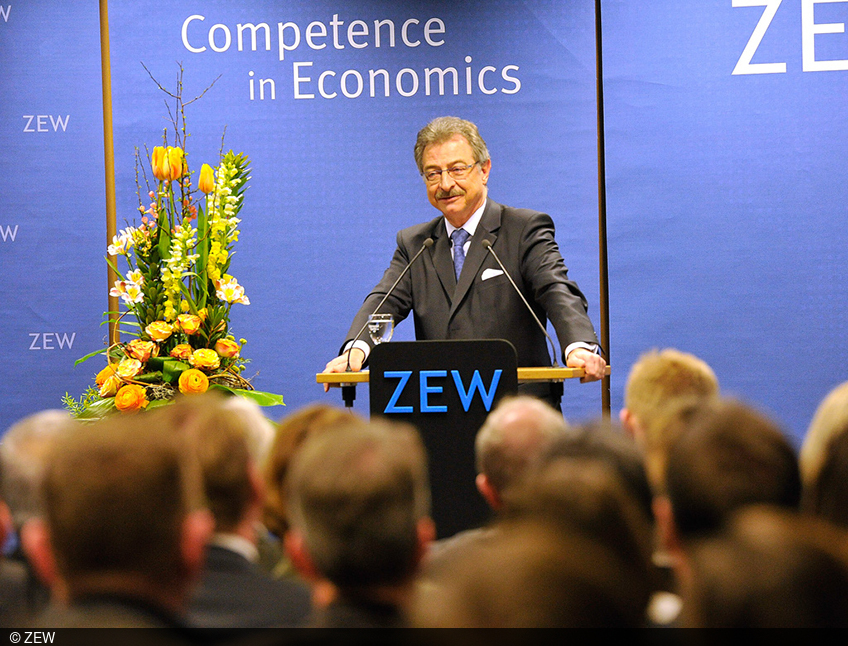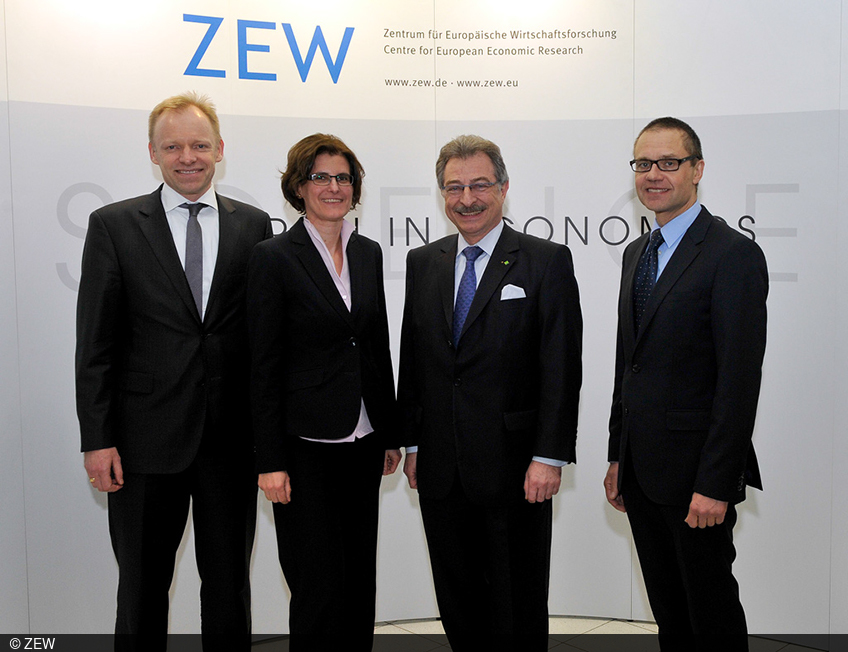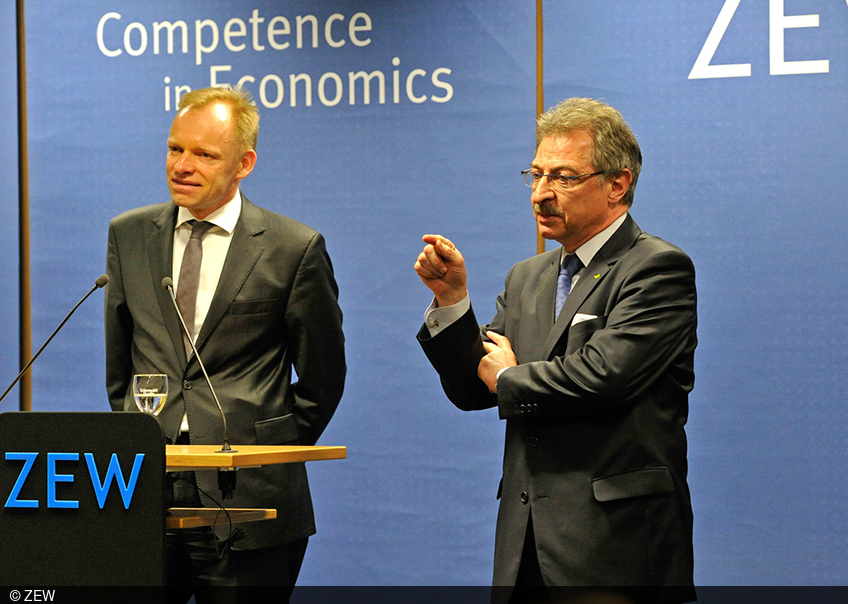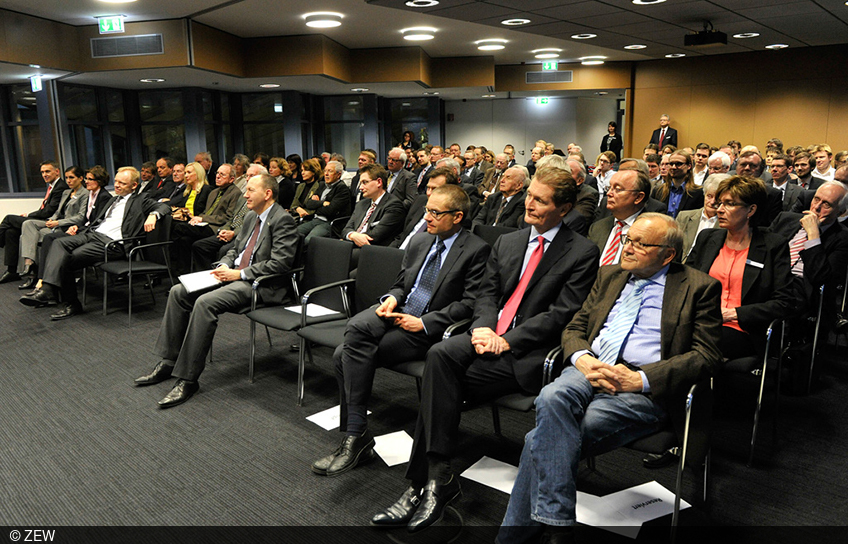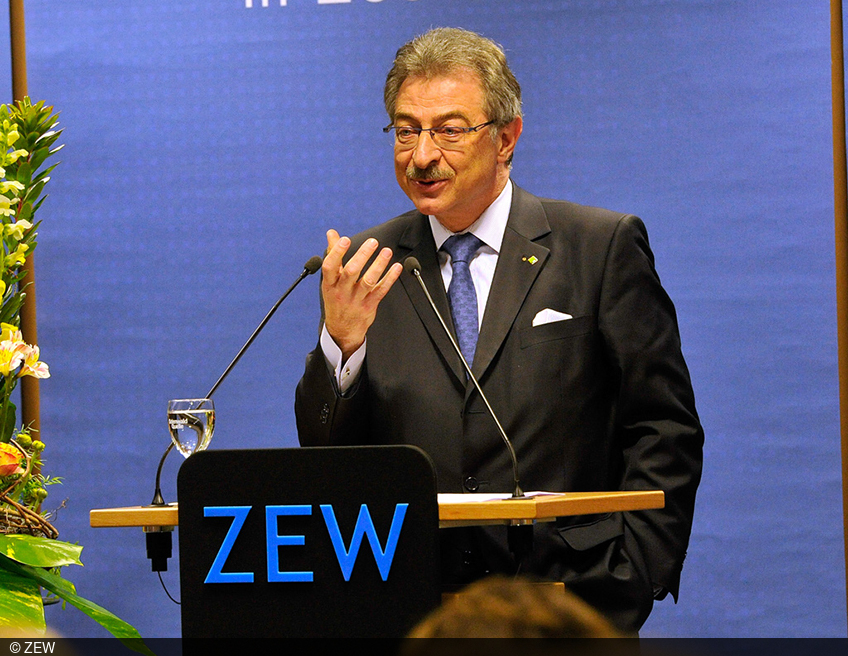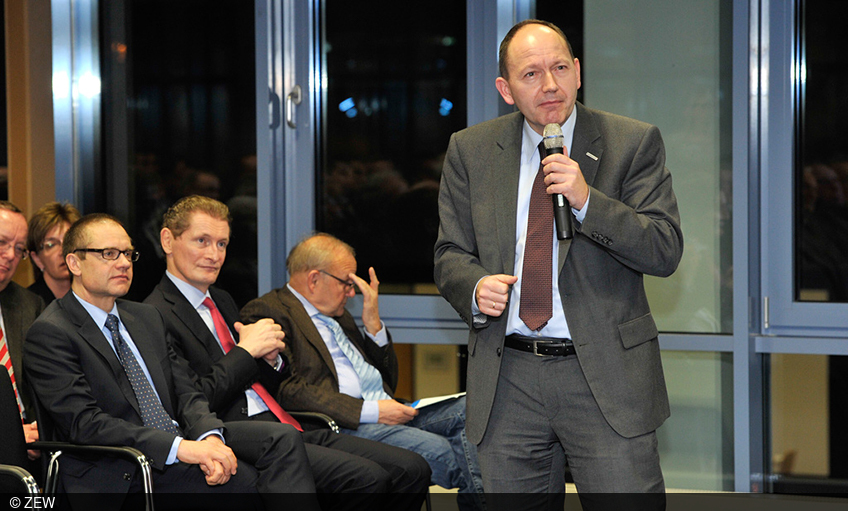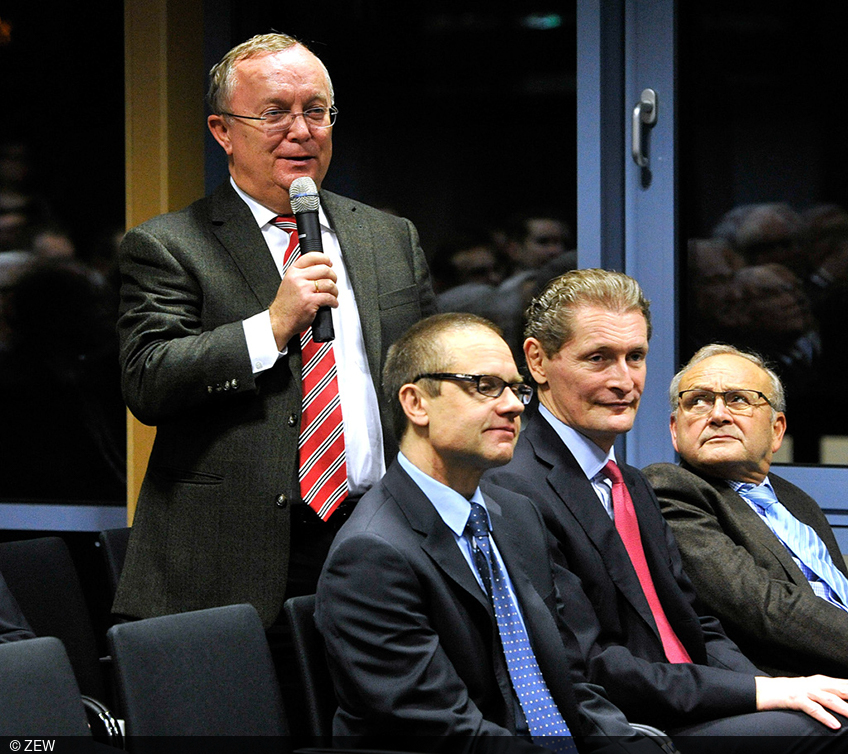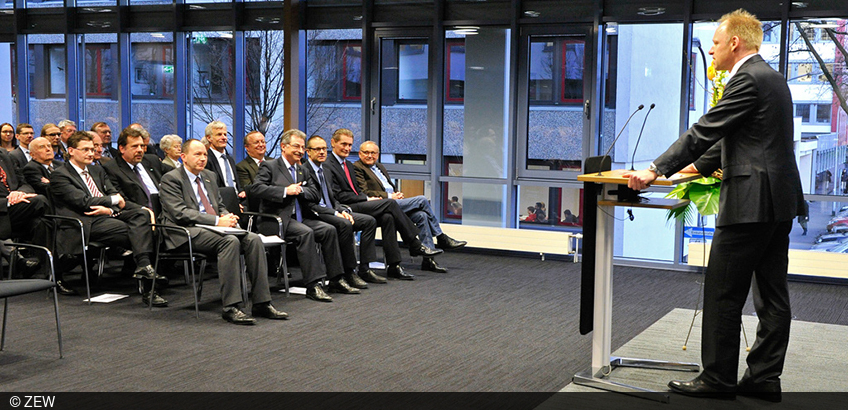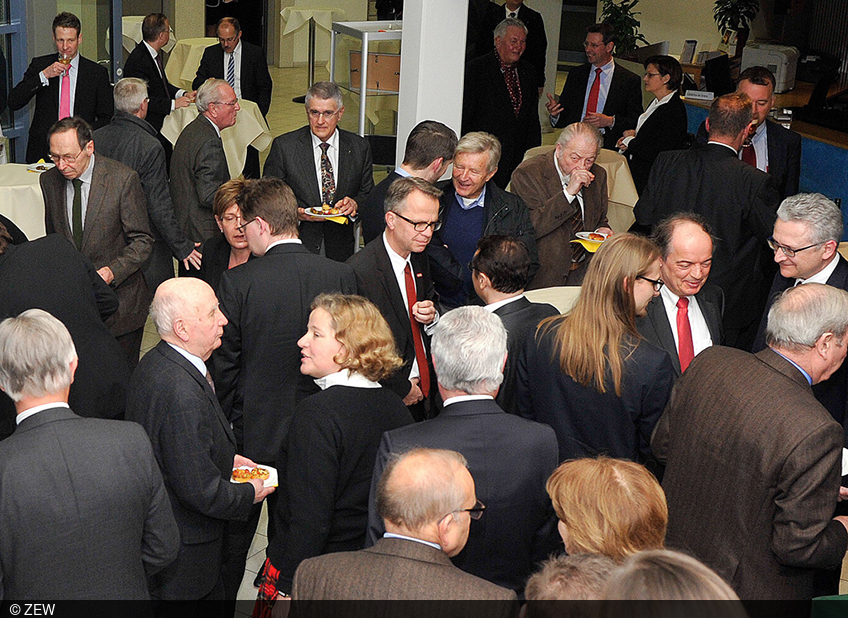First-Hand Information on Economic Policy at ZEW – BITKOM President and DATEV CEO Prof. Dieter Kempf: "Data is the New Oil"
Public EventsFor Professor Dieter Kempf, chairman of the board of the software company DATEV eG and president of the IT inter-trade organisation BITKOM, data is the oil of the next century. "Data are a valuable resource," Kempf said to about 110 guests at the Centre for European Economic Research (ZEW). He asked "Sind Daten die Währung von morgen?" (Will data be the currency of tomorrow?). The talk took place on March 2, 2015, within the ZEW series "First-Hand Information on Economic Policy". In this context, Kempf supports analysis and real-time evaluations of huge data volumes for positive economic effects.
Data in the WWW – a global currency? Not yet, adds Dieter Kempf, but the potential is already at hand. According to Kempf, who graduated in economics, no online service is offered for free. Paying by data is already a common practice – only individuals do not benefit, says Kempf. Social networks and search engines generate advertising returns by the stored user data on their platforms but the user does not have any benefit, he explains. "Data is valuable – also for those who reveal it," notes Kempf. Since the world has changed considerably, an economical use of data is not contemporary any more, and the society of information today is on the cusp of a data economy, a new postulate is required: "We need big data analytics."
According to Kempf, analysing large complex volumes of data in real-time allows to identify correlations and patterns for instance in transportation and health care. His example: two terabytes of information of a certain cancer patient and his disease pattern as well as possible treatment and medication increase the prognosis significantly. "Big data allow better individual methods of treatment," Kempf is convinced.
Even in terms of transportation, large data volumes promise measurable success, assumes Kempf. His example: in Stockholm a real-time evaluation of 250,000 anonymous GPS data per second of car drivers lead to a reduction of 20 per cent of the traffic-related pollutant emissions in the Swedish capital. A BITKOM survey shows that data streams of traffic control could result in an economic benefit of about EUR 4.4 billion in Germany, for instance by preventing traffic jams or by improving loading times of transport goods.
Kempf did not only point out the advantages but also the risks and challenges of an increasing digitalisation. "There are only a few experts who know how to analyse large data volumes." Respecting online security and the danger of data abuse, the use of data and the protection of data privacy belong together.
As appropriate tool to protect sensitive information, he recommends anonymisation, pseudonymisation, and cryptography, meaning the encryption of data. An effective protection is expensive and inconvenient but necessary, he says. For this reason, Kempf does not declare unnecessary the protection of data privacy but explains the need for a new way of dealing with the protection of data: "The balance of wise use and protection of the user data must be our future aim."
